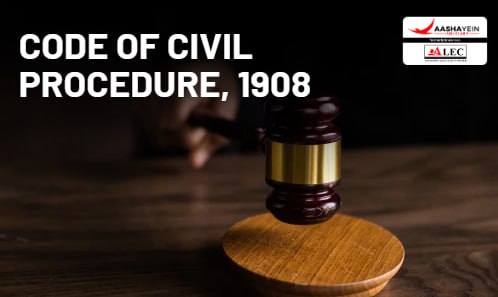A summons is a legal document issued by a court under its seal and the signature of the presiding judge, directing a person to appear in connection with a legal proceeding. Sections 27-29 and Order V of the Civil Procedure Code, 1908, outline the procedure for serving summons on defendants and respondents in civil cases, while Order XVI governs the service of summons to witnesses in legal proceedings.
Procedure when defendant refuses to accept service, or cannot be found- Rule 17
- Refusal to Accept or Inability to Find the Defendant: Rule 17 of Order 5 in the Code of Civil Procedure (CPC) outlines the steps to be taken when a defendant refuses to accept service or cannot be located. If the defendant, their agent, or any other authorized person refuses to acknowledge receipt of the summons, or if the serving officer, after reasonable efforts, cannot find the defendant, specific actions are mandated.
- Affixing Summons: If the defendant is absent from their residence at the time of service and is unlikely to return soon, and if there is no authorized agent or person available to accept service, the serving officer must affix a copy of the summons. This should be done on the outer door or a visible part of the defendant’s residence, place of business, or workplace.
- Reporting Back to the Court: After affixing the summons, the serving officer must return the original summons to the court. Along with this, they must provide a detailed report explaining the circumstances of affixing the summons. The report should include the names and addresses of individuals who identified the house and were present during the process.
You can also read the latest judgment by visiting [Latest Judgment].
For more information, visit [Aashayein Enquiry Section]
Substituted service of Summon
When Substituted Service is Applicable: Rule 20 of Order 5 of the Civil Procedure Code (CPC) allows for substituted service of summons when the court believes that the defendant is intentionally avoiding service or that service cannot be completed in the usual manner.
Methods of Substituted Service: The court may order the summons to be served by:
- Affixing a copy of the summons in a noticeable place within the courthouse.
- Affixing a copy at the defendant's last known residence, business location, or place of work.
- Any other method deemed suitable by the court.
Importance of Compliance: Although substituted service is considered valid under ordinary circumstances, the court must ensure strict compliance with the conditions specified in Rule 20(1) before allowing substituted service to proceed.
Service by Advertisement: When the court orders service through advertisement under sub-rule (1), the advertisement must be published in a daily newspaper that circulates in the area where the defendant was last known to have voluntarily lived, conducted business, or worked for personal gain.
Judicial Analysis
- Basant Singh v. Roman Catholic Mission (AIR 2002 SC 3557)
In this case, the court directed substituted service of summons by publication in a specific local daily widely circulated in the area. However, the notice was published in another local daily not specified by the court. The Supreme Court held that merely publishing the notice in a different local daily did not invalidate the effect of the substituted service, as the purpose of communication was still fulfilled.
- CIT v. Daulat Ram (AIR 1967 SC 1552)
The Supreme Court addressed substituted service under Section 34 of the Income Tax Act, 1922. It held that serving notice by affixing a copy in a conspicuous part of the assesses residence is valid, even if no copy is affixed at the courthouse. This method satisfies the requirements of substituted service as intended by the law.
Effect of Substituted Service: Substituted service ordered by the court is deemed to be as valid and effective as personal service on the defendant.
Time for Appearance in Case of Substituted Service: If the court orders substituted service, it must also set a specific time for the defendant to appear, depending on the needs of the case

